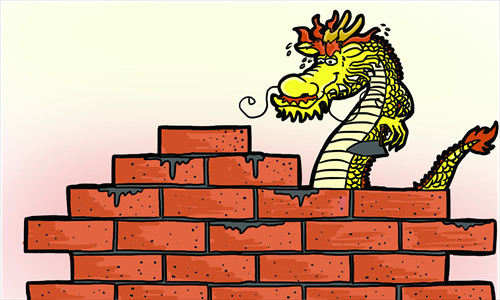Backing international law in China's own best interests

Spiderman used the famous phrase, "With great power comes great responsibility." China, I think, is a responsible country. China is not like the US. It is not invading other countries.
But at the same time, it's got to play a bigger role on the world stage. I want to emphasize that China has two sets of challenges.
On the one hand, China has to manage its role as a great power. In this regard, the biggest challenge China now has is psychological.
China has been successful now for over 30 years since then leader Deng Xiaoping began the process of reform and opening-up in the late 1970s. Yet China continues to use the same language to describe itself.
Here's one concrete example. China always says, "We are a poor developing country." Now this is true in some respects. But meanwhile, China also has the world's second largest economy. The rest of the world now sees China as a giant. But China says, "No, I'm not a giant. I'm just a little kid." So everybody's puzzled, and they do not accept China's explanation.
Of course, China has its own internal problems, such as that its per capita income is still very low.
However, it cannot deny the fact that it has the world's second largest economy, the largest pool of foreign reserves, and ran the most successful Olympics ever in 2008.
The rest of the world sees that China has arrived as a great power. It is not convincing for China to pretend that it is weak.
Though the US has been a responsible great power overall, it is opposed to international law, for domestic political reasons. China can steal a march on and leap ahead of the US by becoming a stronger supporter of international law. This will be good for China, which is now the world's No.1 exporter of goods. To export goods, you need to have global stability. And the best way to achieve that is through international law.
When it comes to soft power, the US is doing better than China. China must now leap ahead of the US in soft power. And the best way to do so is by saying, "We support international law."
One other way China can compete with the US on soft power is by strengthening international institutions, such as the UN, the WHO, the IAEA and other important institutions. China doesn't have to give aid purely for altruistic reasons, but rather to create a better world that will help China. So it is actually an investment in the form of aid.
There is a link between home affairs and foreign affairs. If China makes a contribution to the world by helping to develop the international law regime, Chinese officials can learn more about the rule of law and modern concepts of governance. They can apply these concepts within China. China should also send more of its officials overseas.
On the other hand China has internal challenges. It's got to take care of the new middle class that has emerged.
This new middle class, which is highly educated and very sophisticated, is aware of how the rest of the world perceives China.
If China is perceived overseas as a responsible great power, and held in high regard, the domestic middle class will also appreciate this.
Corruption is not the biggest problem in China today. The biggest problem is always political. When the society changes, the political system must also change and adapt.
China must create more space, internally, for other political forces to emerge. The CPC must now learn to strengthen political institutions. The National People's Congress should play a bigger role in allowing more diverse voices to emerge. That's a way of releasing political steam.
China must avoid repeating the experience of the Soviet Union. The Soviet political reforms happened too quickly and resulted in disaster. China has to reform, but it must reform carefully.
Nevertheless, I must emphasize that political reform today is much more difficult. Democracy is in trouble in Europe and in the US.
At least in China, my understanding is that the elite and the people are aware that there must be political reform. Many Western political leaders do not even acknowledge that they have problems. Their problems are actually more serious.
The US preached the idea of equality of men and women in 1776. Then they took 90 years to abolish slavery. They took 150 years to give women the right to vote. They took 200 years to give the blacks the right to vote. So the US, which began with a relatively clean state, took 200 years to achieve a full democracy.
Now, the Chinese state has millennia of political baggage to slow it down. So if China can reform completely within a century, it will be very fast. Even the US changed progressively. China should do the same.
The author is dean of the Lee Kuan Yew School of Public Policy, National University of Singapore. opinion@globaltimes.com.cn